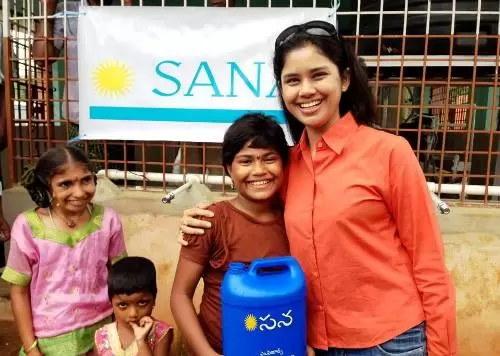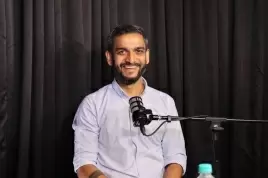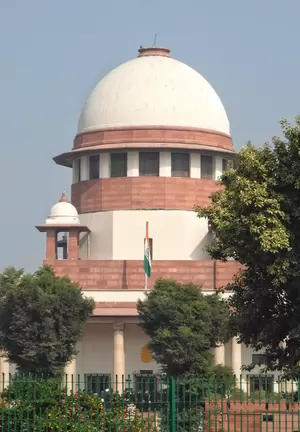‘I have resolved to address the gender issue by concentrating my social interventions in the areas of sanitation and safe water’
02-February-2016
Vol 7 | Issue 5
It all started with a visit to an impoverished village where Sanchaita Gajapati Raju got an opportunity to see rural life from close quarters. Among other social concerns she observed an acute lack of basic conveniences, especially clean drinking water.
Through her interactions with the community, she got a better understanding of their predicaments and then tried to look for ways in which technology could be used to improve their tough existence by not only shoring up public health services, but also by creating facilities that would allow people, primarily women, to spend less time collecting fresh water. Thus her organisation, Social Awareness Newer Alternatives (SANA), was born.
 |
|
Sanchaita Gajapati Raju has set up Social Awareness Newer Alternatives (SANA) that is working towards providing clean drinking water and sanitation facilities to those who have been denied this basic human right for decades (Photo: WFS)
|
She may only be in her thirties today but this enterprising young woman is an activist, lawyer, political scientist and filmmaker all rolled into one, who chose to leave a corporate job to establish an NGO that focuses on tackling water and sanitation issues in a country where women spend a better part of their life sourcing potable water and close to 60 per cent of the over one billion people are forced to defecate in public due to an acute lack of public conveniences.
Through SANA, which won the Google Global Impact Challenge in 2013, she is providing clean drinking water and sanitation to those who have been denied this basic human right for decades.
SANA’s first innovative experiment was a Solar Powered Clean Water Purification Station in coastal Andhra Pradesh, which has produced over two million litres of clean drinking water to date.
The water treatment station also acts as a bio-digester toilet, effectively dealing with the lack of sanitation facilities in the area. With the ambitious goal of ensuring access to clean water and sanitation for everyone in India, SANA is gradually expanding its efforts.
In this one-on-one, she shares her journey and ideas on making a difference.
Q: What do you think have been the most important factors that have helped in getting you where you are today?
A: The most important factors have been my upbringing and education. I have been blessed with parents who have supported me in every way and have instilled the importance of compassion while dealing with others. They made me understand the need, for those of us who come from a privileged background, to give back to society and create an inclusive and equitable world.
Q: Tell us a bit about your childhood, your ambitions and who inspired or influenced you?
A: Although I was born in Hyderabad, Andhra Pradesh, I spent my childhood mostly in Delhi [the national capital]. I was greatly influenced by my mother, Uma Gajapati Raju, who was a Member of Parliament.
From a very young age I accompanied her [wherever she went] and observed as she carried out various social interventions in the rural areas for the less privileged and the marginalised. The biggest impact for me was when she took the Life Line Express [train], a hospital on wheels with cutting edge medical facilities and top class doctors, to the remote areas of her constituency. This brought relief to thousands who otherwise would not have had hope ever of receiving modern medical treatment.
After I graduated, I joined my parent's media company and we made some exciting films – one in particular changed my life. It was a documentary on bringing agricultural best practices to small farmers who had not yet been exposed to any modern farming techniques. Seeing the lives of these destitute farmers changing for the better through this social intervention inspired me to set up my NGO, SANA or Social Awareness Newer Alternatives.
Q: How has being a woman affected your career?
A: I have always been brought up to believe that I am a human being first, and irrespective of gender, I can follow the path I choose. But I do realise that this is not true for the majority of women in my country. Therefore, I have resolved to address the gender issue by concentrating my social interventions in the area of sanitation and safe water, which are pressing issues for women and children.
Q: What do you think is your greatest contribution to society?
A: Since I have been working towards providing clean drinking water and sanitation to those who have been denied this basic human right for decades, I feel my greatest contribution has been the fact that I have been able to bring a sense of dignity to the deprived communities. And with restored dignity has come empowerment.
Nothing devastates human dignity more than having to defecate in the open and drink contaminated water. It brings in its wake disease, stunted growth for children and medical expenses, which the family cannot afford. It also eats into the productivity of the severely marginalised rural people, as every day of illness means they have to forgo their daily wages.
We have been working mainly with women and children from the lower castes [marginalised groups in India of the lowest social standing] and have been able to create a sense of inclusiveness in these villages. We also train the villagers with basic skill development and give them new employment avenues.
Q: What is your message for other women and girls who may be inspired by your journey and achievements?
A: My message to other women and young girls is that they should educate themselves and follow their dreams. When women occupy positions of power and influence, they should leverage this to create a multiplier effect for others.
(This article is part of U.N. Women’s Empowering Women — Empowering Humanity: Picture It! campaign) - Women's Feature Service
















